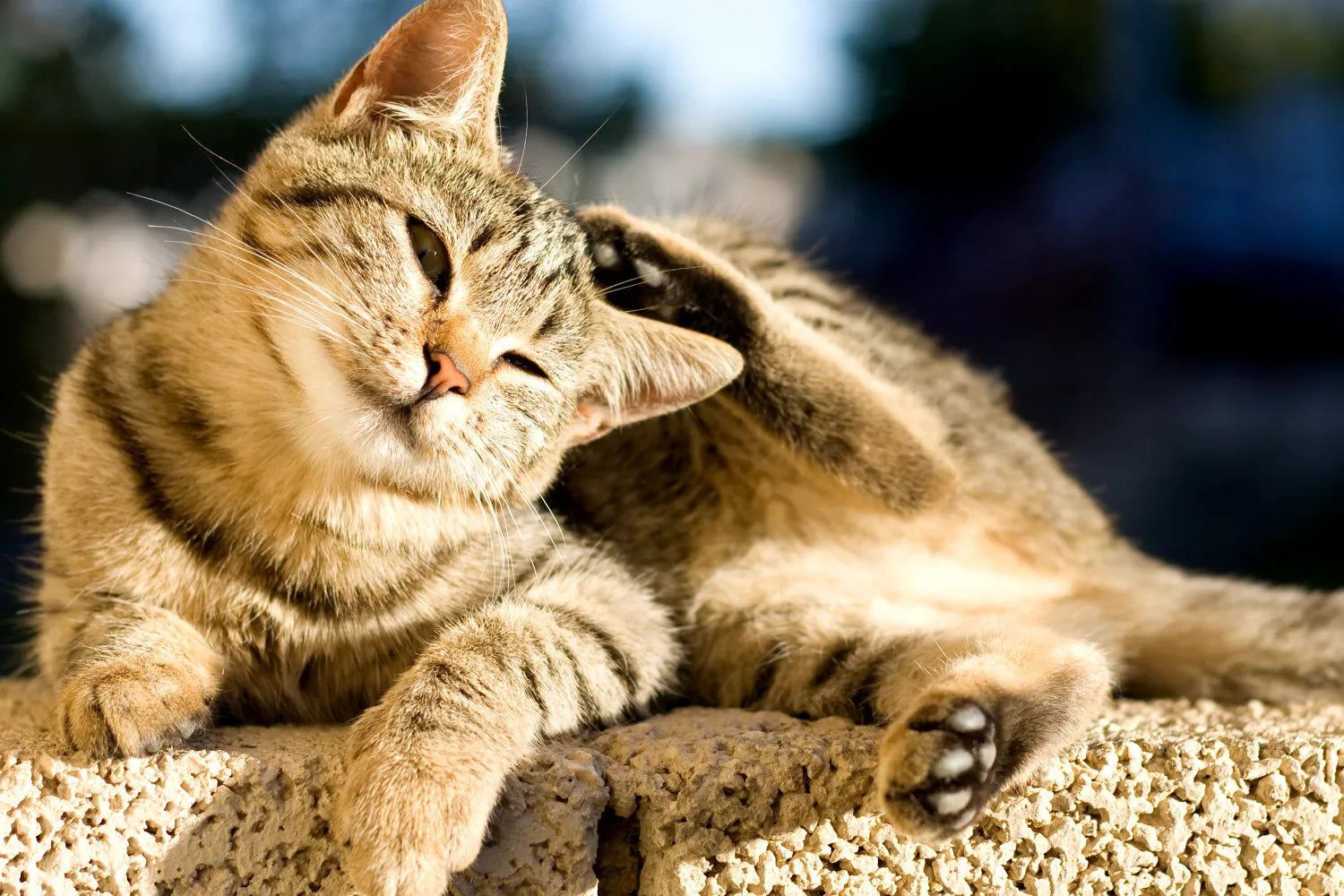13 Most Playful Cat Breeds: What You Need To Know
19-12-2023 By Bridget Reed

Just like humans, cats can develop allergies at any time in their life. Your furry friend can develop an allergy to different environmental allergens, such as pollen or mildew as well as to different ingredients found in their food.
Although food allergies are less common in cats, pet parents need to be aware of common dietary triggers for allergic reactions and symptoms to look for. This article will take a close look at the three most common food allergies in cats to keep an eye on.
Before diving into all the foods your four-legged feline can be allergic to, it’s important to understand what a food allergy is. Allergic reactions to food occur in felines when their immune system reacts negatively to a specific protein found in their food.
Although allergic reactions in cats can be extreme, they are rare (it is thought that only one percent of cats have food allergies). That said, it is important to know the symptoms of allergic reactions in cats because they can be fatal.
Every feline will have a slightly different reaction to allergens. However, there are a few symptoms that you can keep an eye out for:
Some of the most common symptoms of allergies in cats include:
Your cat may also develop skin lesions which can lead to:
In some more severe cases, your cat may also experience issues in their gastrointestinal tract, such as diarrhea and vomiting.
Remember that your feline can develop allergies at any point in their life, even if they’ve been eating the same food for years. This section will closely examine the five foods that most often trigger allergic reactions in cats.
Although these are the most common foods that cause allergic reactions, any food source can potentially trigger an allergic reaction.
The food most often associated with food allergies in cats is meat. Beef, chicken, and fish can all trigger allergic reactions. Meat byproducts are generally found in low-quality cat food and are made from the excess organs, tissues, and fat from animals that humans won’t eat.
Although people associate cats with milk, adult cats usually do not have enough lactase enzymes to properly digest dairy products. Cheese, milk, and yogurt can trigger allergic reactions in your four-legged friend.
Most often, the symptoms of lactose intolerance or a lactose allergy include vomiting and diarrhea.
Another potential food sensitivity your cat may have is to grains. Felines can have a sensitivity or allergy to corn, wheat, oats, barley, rye, rice, or other grains often found in their food.
Although grain-free cat food is growing in popularity, there is no need to feed your cat a grain-free diet unless you think they have a sensitivity or allergy to grains.
That said, cats do not need to ingest grains to lead happy, healthy lives. Cats are obligate carnivores, meaning they need to get all their protein from meat-based products. So, if your furry friend eats grains, it is important to ensure that their diet mostly consists of meat-based proteins.
Unlike other types of allergies in cats, there is not a fast, simple test to determine what food allergies your feline may have. To determine your cat's allergies, your vet will likely suggest an elimination diet trial.
This test involves feeding your cat a specific diet that does not contain any of the proteins your cat has previously been exposed to for six to eight weeks.
There are three common forms of elimination diet your vet can prescribe. They include:
The most important thing to remember when trying an elimination diet trial with your cat is that for it to be successful, they can only eat the food recommended by the veterinarian. If you normally feed your four-legged friends scraps from the table or the occasional treat, it’s a good idea to avoid doing so during the elimination trial, or the results will be inaccurate.
If your feline’s allergy symptoms subside with the elimination diet trial but reemerge when their old food is introduced, then you can say with certainty that they have a food allergy. Reintroducing your cat’s old food once they have been on the elimination diet trial is called a food challenge.
Unfortunately, there is no cure for feline food allergies. Instead, you can learn how to manage your furry friend’s symptoms and craft a diet that will not induce allergic reactions.
If the diet you introduced with the elimination diet trial did not trigger your cat’s allergies, you might want to continue feeding them that. You can also talk with your vet about finding another type of kibble or wet food to give your cat.
Like humans, the level of allergies in cats varies significantly from one cat to another. The most important thing to do when treating your cat’s allergies is to find a diet that does not trigger their immune system and stick to it long-term.
Although they are not common, cats can have food allergies. Most often, cats are allergic to beef, chicken, and fish. They can also be allergic to dairy and grains, and there are several symptoms to look out for that may indicate an allergy.
If you suspect your furry friend does have a food allergy, there are several steps you can take at home to help manage their symptoms.
Sources:
Food Allergies | Cornell University College of Veterinary Medicine
Food allergy in dogs and cats: a review | NIH
Critically appraised topic on adverse food reactions of companion animals (2): common
food allergen sources in dogs and cats | BMC Veterinary Research
Shipping Text / Shipping Price